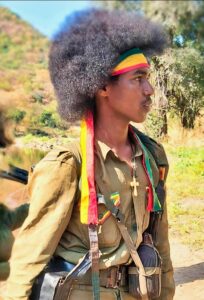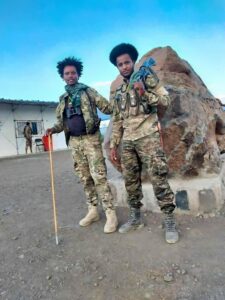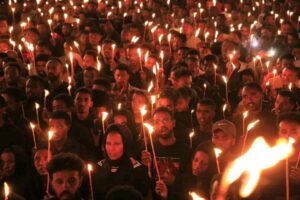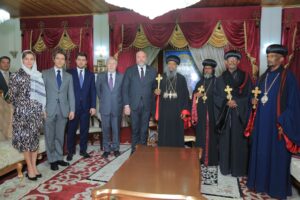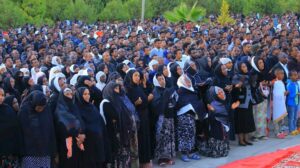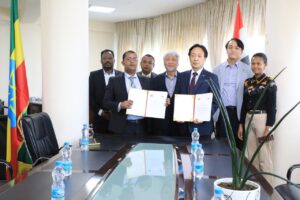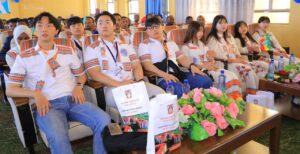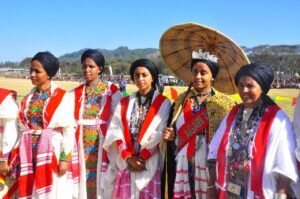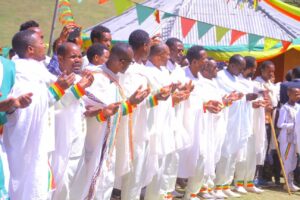Ethiopia › Forums › Food for thought › The war in Tigray is being complicated by ideological ambitions › Intense fighting in Ethiopia’s northern Tigray region
Intense fighting in Ethiopia’s northern Tigray region
Intense fighting in Ethiopia’s northern Tigray region for the past three weeks has raised humanitarian concerns over the safety of nearly 100 000 Eritrean refugees, who are living in overcrowded camps as aid workers warn of dwindling humanitarian supplies. 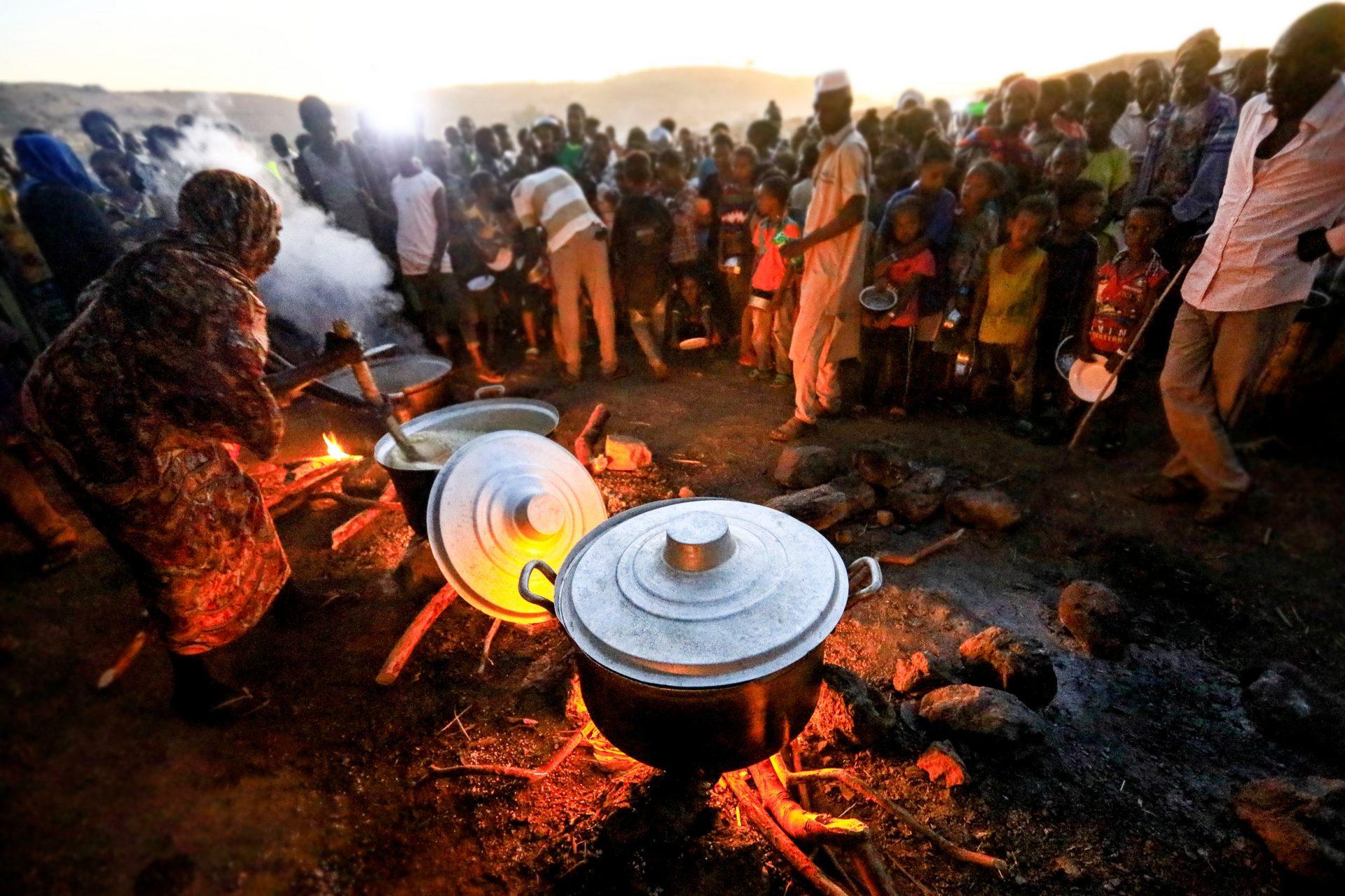
Ethiopian refugees wait for food at the Um-Rakoba camp on the Sudan-Ethiopia border as they flee from the fighting in Tigray.
Abiy Ahmed – who is Ethiopia’s first prime minister of Oromo ethnicity and who received the Nobel Peace Prize last year in part for his efforts to end Ethiopia’s border dispute with Eritrea – began military operations on 4 November against the Tigray People’s Liberation Front (TPLF) that governs the northern Tigray region bordering Eritrea. This was after Abiy accused the TPLF of attacking a federal army base and commandeering weapons.
The fighting, which has included aerial bombardments of locations in Tigray, has since spilled over into neighbouring Ethiopian state Amhara and the TPLF fired rockets at the airport in Asmara, the capital of Eritrea.
Tensions between the TPLF, which dominated Ethiopian politics for three decades until Abiy’s rise to power in 2018, and Abiy’s central government in Addis Ababa have been simmering for some time but escalated dramatically in recent months.
Abiy dissolved the coalition of ethnic regional parties headed by the TPLF that had ruled Ethiopia until 2018 and merged them into a single, national party called the Prosperity Party last year. The TPLF alleged that the merger contradicted Ethiopia’s 1994 Constitution, which defines the country’s structure as a multicultural federation of semi-autonomous, ethnic-based territorial units.
The TPLF held regional parliamentary elections in Tigray in September, in defiance of Abiy postponing the national and regional elections that were scheduled for August because of the coronavirus pandemic. The TPLF accused Abiy of attempting to extend his time in office, while the central government said the Tigray elections were “unconstitutional”.
These tensions have now exploded into open warfare.
‘Life is impossible and unliveable’
Hundreds, possibly thousands, have been killed in the conflict, and there are reports of ethnically motivated mass killings and numerous Tigrayan civilians being racially profiled, arrested and purged from their jobs. This has led to the United Nations warning of a heightened risk of “genocide, war crimes, ethnic cleansing and crimes against humanity”.
Rights groups, aid workers and Eritrean advocates fear that Eritrean refugees in Tigray, scattered throughout four camps near the border, are becoming victims to this escalating political conflict.
Ann Encontre, the head of the United Nations High Commissioner for Refugees (UNHCR) in Ethiopia, said the refugee agency is “extremely worried” about the impacts the conflict could have on the Eritrean refugees. The lack of humanitarian access to the Tigray region and its inability to bring in food and supplies is compounding concerns for the refugees, who are almost completely reliant on aid from the UNHCR and its partners, she said.
Ethiopia Autonomous Media


